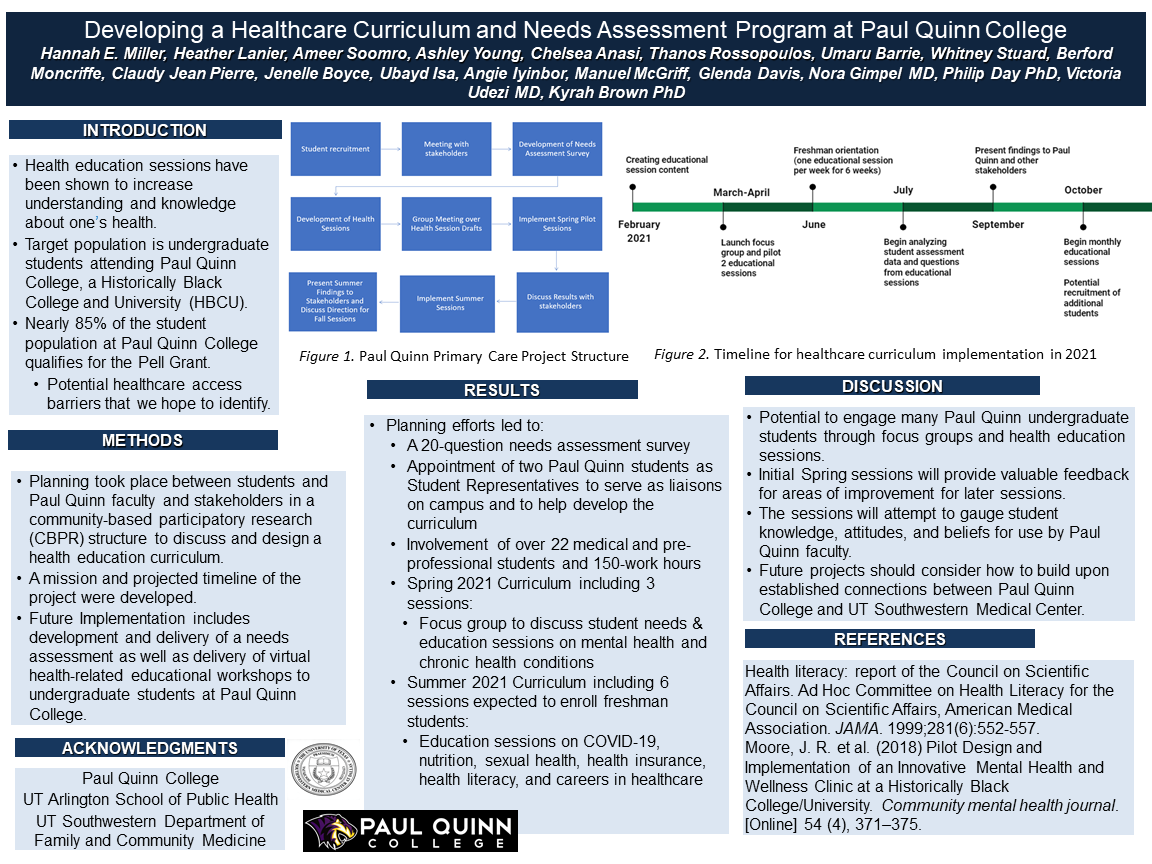SRFP027: Developing a Healthcare Curriculum and Needs Assessment Program at Paul Quinn College
Hannah Miller; Heather Lanier, MPH; Umaru Barrie, BS; Ameer Soomro, BS; Thanos Rossopoulos, MD
Abstract
Objective: To describe the development of a new student-led healthcare curriculum and needs assessment program for undergraduate students at Paul Quinn College.
Study Design: Qualitative study.
Setting/Instrument: Students and faculty from UT Southwestern Medical Center UTSW) met with Paul Quinn faculty with community-based participatory research (CBPR) principles in mind to discuss and design a health education curriculum.
Main Outcome Measures: A mission and projected timeline of the project were developed.
Results: A needs assessment survey was abridged from 100 to 20 questions. Two PQP students were appointed as Student Representatives to serve as liaisons on campus and to help develop the curriculum. A curriculum for the Spring was established to include 3 sessions: a focus group to discuss student needs and education sessions on mental health and chronic health conditions. A curriculum for the Summer was established to enroll freshman students during orientation and to provide education sessions on: COVID-19, nutrition, sexual health, health insurance, health literacy, and careers in healthcare.
Conclusions: This project has the potential to engage many Paul Quinn undergraduate students through focus groups and health education sessions. Initial Spring sessions will provide valuable feedback for areas of improvement for the later Summer sessions. These sessions will attempt to gauge student knowledge, attitudes, and beliefs so that faculty at PQP can be notified of student health concerns and needs. Future projects should consider how to build upon the connections now established between PQP and UTSW to improve health literacy at this local HBCU.

Debora Goldberg
dgoldbe4@gmu.edu 11/20/2021Hi Hannah, Heather and others, Very interesting topic and great layout for the poster presentation. It is great that your team jumped up to meet the increased need for health and wellness for undergraduate students. We also developed a similar course for undergraduates in Stress and Wellbeing in the College of Health and Human Services at George Mason University. The students love the course and it teaches them to be self aware and to help others (such as peers) get the services or assistance they need. Great work! All the best, Debora